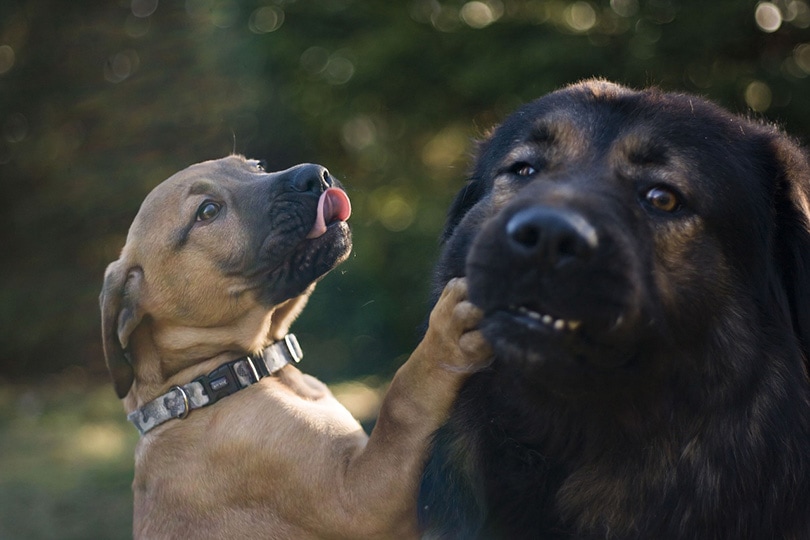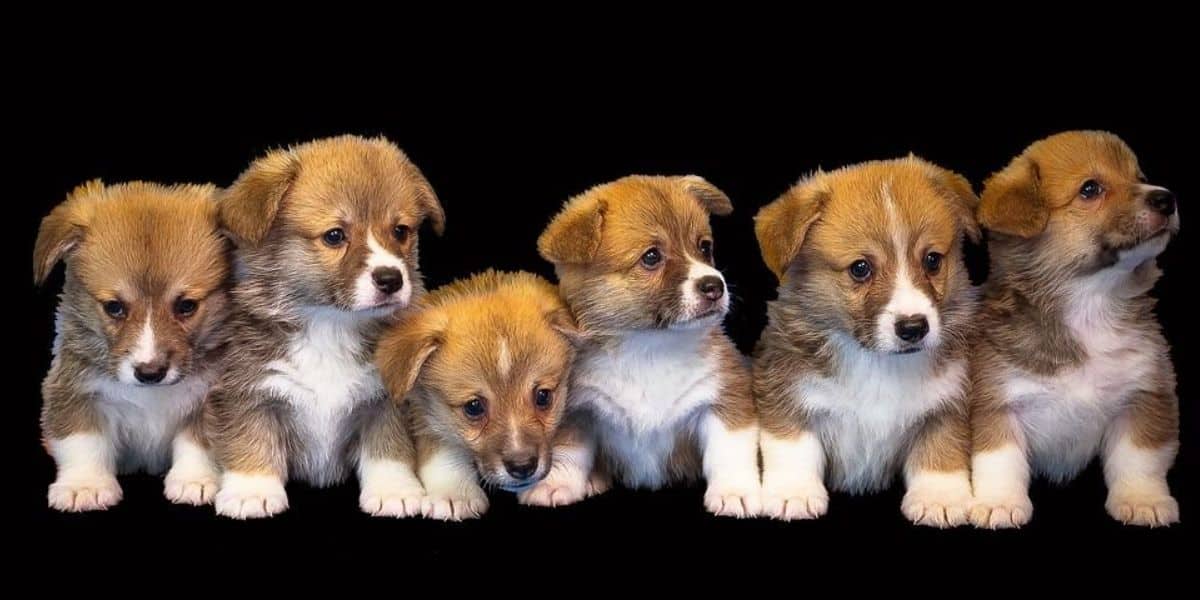
Pups that grow to adulthood in the same home as their parents will continue to be recognized by their mother and father but not necessarily in a parent-offspring way. It could be a very happy and very exciting reunion.

The father can help set examples for the little ones especially when it comes to canine social etiquette and playtime.
Do puppies recognize their father. Its unlikely that a male father dog would recognize his puppies by scent or familiarity. Most dog dads dont even get to meet the puppies at birth and so dont have the paternal bond that a dog mother might have maternally. Do father dogs recognize their puppies.
Fathers do not recognize their puppies. From the moment of birth they may understand that these are vulnerable and young dogs and be gentle with them. Or they may be under the impression that they are new family members.
However if the answer to the question do male dogs remember their puppies is a no then breeders do not need to worry about the father missing his puppies. Do Male Dogs Know Their Puppies. A quick answer to this complex question is that male dogs do not really recognize their puppies.
However it is difficult to conclude this fully. As researchers discovered more about dogs recognition abilities they wondered if adult puppies would recognize their parents even years later. Studies show dogs can recognize their parents and siblings but whether that recognition is based on scent or some other factor is still not known for certain.
Depending upon whether the fathers or mothers side has more genetic influence or has a very distinctive feature that is passed along will determine who the pups will look like. And of course if you have a lot of love pride in your dog their pups may look like them to you even if they were really baby elephants. In spite of the fact that there is no proof that father dogs recognize their puppies some show practices that demonstrate they may.
A few sires actually display a portion of that nature and appear to be defensive of their puppies. They may even partake in cleaning the litter. One of ours actually fed a litter of a completely different breed after their mother died right after she had a litter her self so she knew she was meant to feed them.
The father wont know the pups are his but like the mother he may instinctively help the young in the presumption they might be his. The first 15 days or so after your female dog gives birth are when its most important to keep the male dog away. This is when the puppies are considered newborns and when the mother is going to be closest with them.
After 20 days or so the mother will begin to calm down as the puppies explore their surroundings. A 2013 study in Animal Cognition suggested that dogs do indeed have long-term memory so it makes sense that they might be able to recognize their pups. But the fact is that it depends on a number of factors like how long theyve been separated.
The first night they always cry a lot because they miss their mother their brothers and the place where they were born. This is perfectly normal the puppies are in a place that they do not know that does not smell the same without the warmth of their mother and with a new family that is as nervous as them. The ideal age to separate a puppy.
We all know people treat their dogs like children but do dogs think of humans as parents. The 16 th century poet John Donne famously wrote the now-common line no man is an island meaning that people instinctively need relationships and interaction with fellow human beings in order to be happy. Studies show that dogs are capable of recognizing their parents later in life if they were around them during a crucial early period.
While male dogs arent usually the most natural parents their presence can sometimes be helpful for puppies. The father can help set examples for the little ones especially when it comes to canine social etiquette and playtime. He can also help the wee pups learn about social ranking in the doggie world.
Status is a big component of life as a dog and this harks back to their wild. Puppies can pick on their mothers smell early on before separation and can use it to recognize their parents if they meet. These animals also possess associative memory of repetitive events at best.
Surprisingly female dogs showed a preference for the scent of their fathers but the male dogs did not. Because of the small number of participants Hamilton and Vonk recommended that this finding be confirmed in a bigger study. Handy HintYou might find this article about dad dogs recognizing their puppies quite interesting too.
If they recognize the other dog they might wag their tail lick him or her put their ears up or even jump up. It could be a very happy and very exciting reunion. Since dogs are historically pack animals it would make sense that a dog would remember their family even after many years of not seeing their mom or dad.
That means that the pups must have an inherited ability which allows them to recognize and remember their mother simply because for the pack to. But some people would argue that domestic dogs have become so far removed from their ancient ancestor that theyve lost their pack instinct having no need for such recognition of family. This question was first posed by a study at The University of Belfast in Ireland a very thorough project that involved a number of dog litters.
Puppies who are not socialized can be shy or reserved after they leave the litter. When puppies are taken too early complete imprinting does not occur and the mother dog will not recognize her offspring. Typically puppies begin to be weaned between 4 and 6 weeks of age but the litter remains with the mother until they are at least 8 weeks old.
The studies do seem to show that puppies and sometimes even older dogs mothers. At least as far as the data is concerned it appears clear that a dog even as an adult will still recognize its biological mother. Psychology Today.
Pups that grow to adulthood in the same home as their parents will continue to be recognized by their mother and father but not necessarily in a parent-offspring way. Regardless of bloodlines dogs who live in the same home recognize each another as members of their pack. Both parents actively raise their young who often stay with the pack for several years until the male pups are old enough to break away and form their own packs.
Do Cats Recognize Their Parents. When kittens are first born they recognize their mothers. They imprint on their mothers shortly after birth and recognize them primarily based on smell.
Imprinting keeps the kittens safe. However kittens dont recognize their fathers because they dont feed or protect their young. Kittens feed on their mothers milk so the father cant assist.